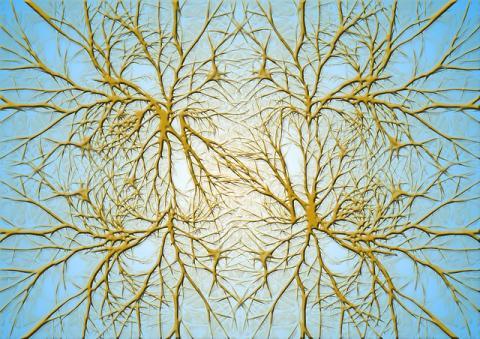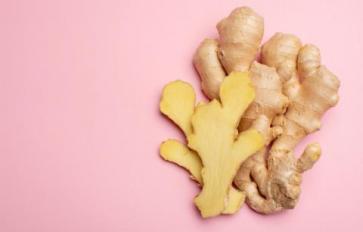
“All disease begins in the gut.”
– Hippocrates
Hippocrates was getting at something here. Perhaps all diseases do not begin in the gut but there is mounting evidence that many chronic diseases do.
Did you know that we have a second brain? And it’s in our gut.
Your second brain does not control any conscious thought or decision making; however, it enables us to interact with the outside world while being inside our body. The second brain, technically known as the enteric nervous system, is located in the gut lining and is equipped with its own reflexes and senses. The enteric nervous system is in constant communication with our brain, influencing our emotions and actions.
A Poor Gut Feeling
We are capable of developing “mental illness” of the second brain when we abuse our gastrointestinal tract. Do you ever wonder why you feel butterflies in your stomach when infatuated, or why you feel nauseated after a breakup? We often feel emotions in our gut first! This is caused by a reduction in blood flow to your gut and the increased release of the hormone, adrenaline. It’s part of your flight or fight response. Our emotional state is intimately linked with the functions of our digestive system. Controlling your stress level is essential in managing a disease like Crohn’s disease, which flares up in high stress situations.
What happens when the digestive tract is damaged?
Gastrointestinal damage can physically manifest in many ways. The most common GI diseases include Colitis, Crohn’s Disease, Irritable Bowel Syndrome, Ulcers and Candida. Symptoms may manifest as a less obvious condition such as autism, arthritis or cancer. At first, you might not recognize the connection between the gut and these diseases. Think about it this way: when your gut is not properly digesting and absorbing nutrients how does the rest of your body get the nutrients it needs to function? Not to mention that our digestive lining soaks up any chemicals and toxins that are in our food. This is how chronic disease starts.
When the GI is damaged it is less able to filter food molecules, bacteria and toxins. Due to increased intestinal permeability these molecules leak out of the small intestine and wind up in the bloodstream. Since these molecules do not belong outside of the gut, the immune system mounts a response and attacks them. The attack causes inflammation, food sensitivity, rashes, and joint pains, resulting in an autoimmune disease.
The Microbiome: The Key to a Happy Gut
I’m not going to lie, I could not wait to write about the microbiome. The microbiome is the hot topic in current research and we’ve only recently begun to understand the role of the microbiome in human health.
Our gut is home to hundreds of trillions of microorganisms. These little critters keep us alive. They protect us from infection, help regulate our immune system and control our emotions! Science has generally ignored the importance of these critters, prescribing irresponsible amounts of antibiotics and stifling the vibrant ecosystem that is our gastrointestinal tract. We now know that the balance of our microorganisms is very important. The hygiene hypothesis explains that less exposure to a variety of bacteria during childhood increases the susceptibility to disease. Essentially, our environment is too sterile and our immune system is not being primed to deal with pathogens.
The Microbiome-Obesity Connection
We have 4 different types of bacteria in our gut: Proteobacteria, Bacteriodetes, Firmicutes, and Actinobacteria. The concentrations of these bacteria change with age and diet. Recent studies have shown that obese people have lower ratios of certain bacteria in their gut. One function of bacteria is extracting energy from the nondigestible components of the food we consume. When there is an imbalance of bacteria in your gut, your microbiome becomes more efficient at extracting energy from food, which causes weight gain.
So now that we know that the balance of bacteria plays a role in weight loss let’s go back to the topic of antibiotics. Do you know why vendors feed livestock antibiotics? So that livestock gain weight without consuming more calories! Antibiotics make our livestock fat and antibiotics have the same effects on humans. Avoid meat raised with antibiotics and, when possible, avoid prescription antibiotics.
The Microbiome- Immune System Connection
Over 70% of the entirety of your immune system is in your digestive tract. Why? Because we use our gut to interact with the outside world. The gut is our first line of defense. We have something called gut associated lymphoid tissue (GALT) that lines our gastrointestinal tract. GALT is part of our immune system. The bacteria in your gut improve the development of GALT. Bacteria release cytokines (signal molecules) to the brain when there is inflammation, such as the presence of a potential pathogen. Bacteria also enhance colonic mucosa differentiation -- an underdeveloped GALT may be less primed to fight infection and will also react inappropriately to certain foods and environmental molecules such as pollens, fruits, nuts, etc. This is where allergies come from! An imbalance or absence of bacteria in your gut causes severe inflammatory issues and will lead to autoimmune diseases. As you can see, the key to a healthy immune system is a healthy gut.
Other functions of the microbiome:
Regulates Metabolism
Production of Vitamin K
Production of Short Chain Fatty Acids
How To Heal Your Gut
Do you suffer from acid reflux, constipation, diarrhea, or stomachaches? It’s smart to correct the issue now rather than letting it manifest into a chronic disease. Let’s discuss some essential steps in healing the gut.
- Eat as clean as possible. This means eliminating irritants such as processed foods, GMOs, fried foods, alcohol, gum, and medications from your routine.
- Pass on inflammatory foods such as meat, dairy, coffee, sugar, and spicy foods.
- Detox your gut using herbs. Essential herbs for digestion: Aloe Vera, Marshmallow Root, Fennel, and Slippery Elm.
- Repair the gut using supplements such as L-glutamine, an amino acid that helps regenerate the gut wall lining. Fish oils, zinc, and B-vitamins are also great!
- Find local bee pollen. Bee pollen has essential enzymes that help you digest food. Bee pollen is also a natural antibiotic. Great for acid reflux!
- Restore the good bacteria. Eat fermented foods that contain good bacteria and take a probiotic. Ask me for recommendations!
- Feed your bacteria with probiotics such as fiber from raw veggies and whole grains.
- Drink a ridiculous amount of water to help flush your system.
- DE-STRESS YOUR LIFE.
The best way to get probiotics from your food:
Fermented foods are an excellent option to repopulate your gastrointestinal tract. Do not expect to get much probiotics from yogurt unless it comes straight from the farm. Conventional yogurt is mostly sugar and chemicals. Stay away! Dairy is also a pro-inflammatory food and will do more damage to your gut than good. It’s best to leave yogurt off the grocery list.
Some better probiotic options:
Miso
Sauerkraut
Kombucha
Pickles
Microalgae
Tempeh
Kimchi
Kefir (A dairy option rich in probiotics)
Want to know more about foods high in probiotics? Read here!








